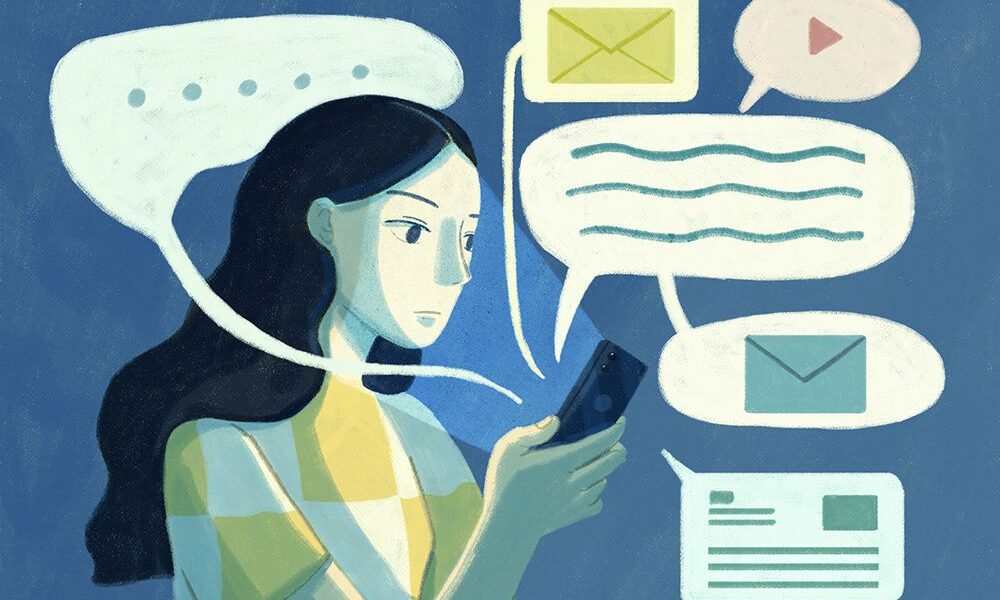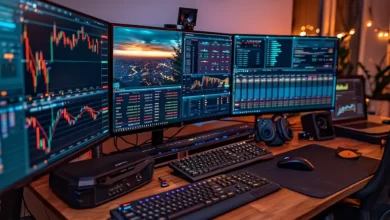Can Too Much Social Media Cause Depression?

In today’s digital age, social media has become an integral part of our daily lives. Whether it’s scrolling through Instagram, posting on Facebook, or catching up with tweets, millions of people engage in these platforms every day. While social media can keep us connected, it can also have a darker side. Recent studies have highlighted a potential link between excessive social media use and the onset of depression.
The Rise of Social Media Usage
Over the past decade, social media usage has skyrocketed. Platforms like Facebook, Twitter, Instagram, and TikTok have grown exponentially, with billions of users worldwide.
As more people become dependent on social media, concerns have been raised about its long-term mental health effects. Social media was initially designed to bring people closer, but ironically, it may be contributing to increased feelings of loneliness and isolation.
It’s important to recognize that not all social media use is harmful. Many people find it beneficial to stay connected with loved ones, promote their businesses, or even discover new interests.
However, the issue arises when usage becomes excessive or obsessive. This over-reliance on social platforms can lead to negative consequences, particularly regarding mental health.
If you’re researching healthcare options like Medicare, for instance, it’s essential to consider how much time you’re spending online, including on websites like https://www.comparemedicareadvantageplans.org/medicare-advantage-plans-2025-comparison/ for essential services.
How Social Media Can Lead to Depression
Several factors explain why too much social media can cause or exacerbate depression:
- Comparison Trap: Social media often showcases the highlights of people’s lives, leading users to compare themselves to others. Constant exposure to the seemingly “perfect” lives of friends, celebrities, and influencers can create feelings of inadequacy and low self-esteem.
- Cyberbullying: Unfortunately, social media has also become a breeding ground for cyberbullying. Negative comments, harassment, or targeted bullying can significantly affect mental health, especially among young people.
- Fear of Missing Out (FOMO): The desire to stay updated on everything happening around us can create anxiety. If we feel left out or miss out on experiences others are having, it can lead to dissatisfaction with our own lives, ultimately contributing to depression.
- Sleep Disruption: Excessive social media usage, especially before bedtime, has been linked to poor sleep. The blue light from screens can interfere with our circadian rhythms, making it difficult to sleep and affecting our mood the next day.
The Signs of Social Media-Induced Depression
If you’re concerned that social media might be affecting your mental health, it’s essential to recognize the signs. Common symptoms of social media-induced depression include:
- Feeling sad or down after spending time on social media
- Constantly comparing yourself to others
- Losing interest in activities you once enjoyed
- Experiencing anxiety when you’re not checking your phone
- Having trouble sleeping after late-night social media sessions
If you or someone you know is experiencing these symptoms, it might be time to reconsider your relationship with social media.
Finding Balance in a Social Media World
It’s unrealistic to expect people to cut social media out of their lives completely, especially since it has become such a prevalent part of modern life. However, finding a balance is crucial for mental well-being. Here are some tips to maintain a healthy relationship with social media:
- Set Limits: Allocate specific times for social media use. Limiting your screen time can help reduce negative feelings.
- Unfollow or Mute: If certain accounts make you feel bad about yourself, consider unfollowing or muting them.
- Engage Meaningfully: Instead of mindlessly scrolling, try to engage in meaningful conversations with others.
- Avatars: If using video such as twitch or others try and use your real likeness and avoid avatar and vtuber maker software
- Take Breaks: Consider digital detoxes from time to time. Taking a break can refresh your mind and help you gain perspective.
Conclusion
While social media offers many benefits, excessive use can have adverse effects on mental health, including contributing to depression. It’s important to be mindful of your usage, recognize when it might be affecting your well-being, and take proactive steps to maintain a healthy balance. By doing so, you can enjoy the positive aspects of social media without letting it take a toll on your mental health.





